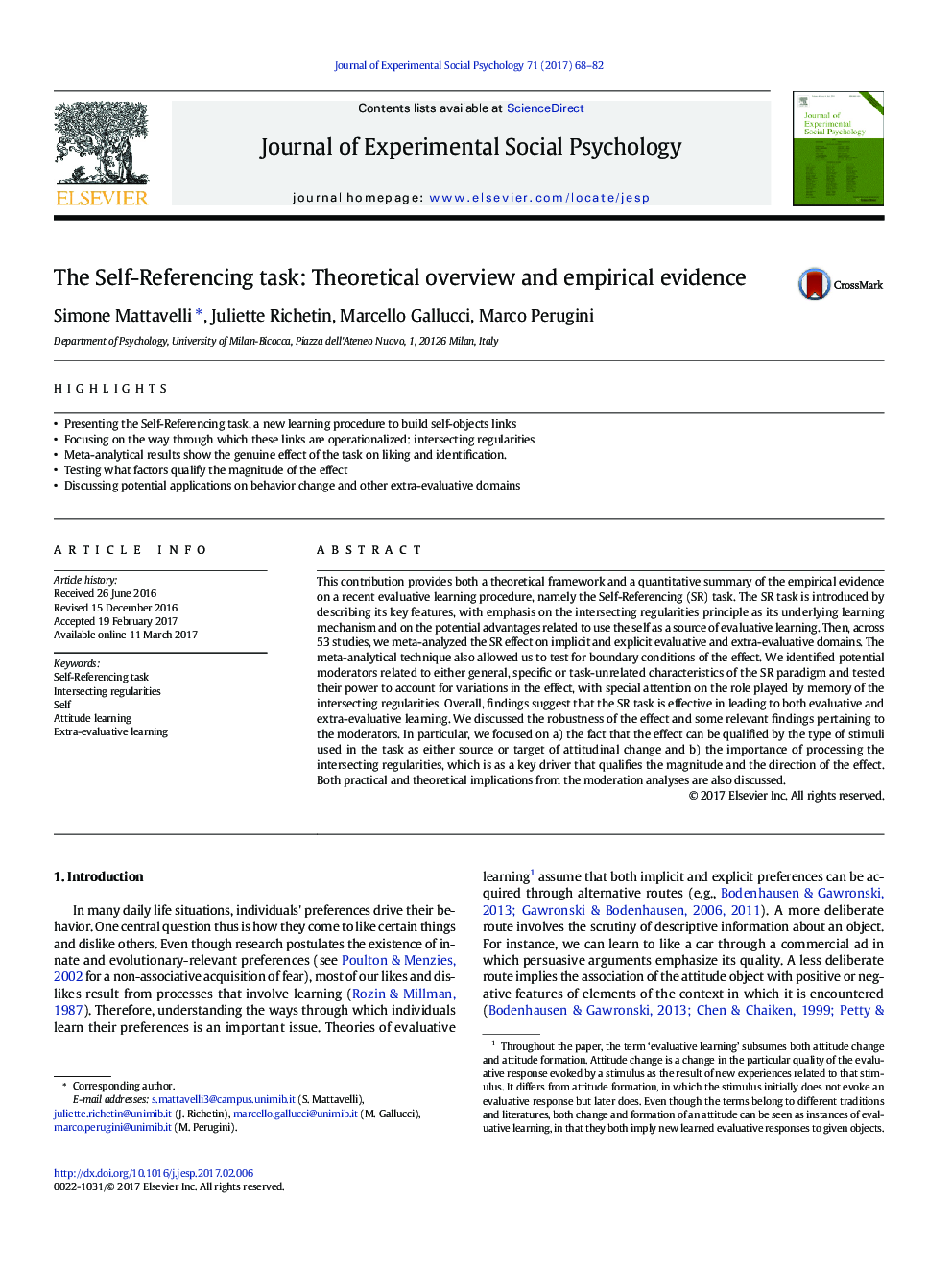| کد مقاله | کد نشریه | سال انتشار | مقاله انگلیسی | نسخه تمام متن |
|---|---|---|---|---|
| 5045612 | 1475852 | 2017 | 15 صفحه PDF | دانلود رایگان |
- Presenting the Self-Referencing task, a new learning procedure to build self-objects links
- Focusing on the way through which these links are operationalized: intersecting regularities
- Meta-analytical results show the genuine effect of the task on liking and identification.
- Testing what factors qualify the magnitude of the effect
- Discussing potential applications on behavior change and other extra-evaluative domains
This contribution provides both a theoretical framework and a quantitative summary of the empirical evidence on a recent evaluative learning procedure, namely the Self-Referencing (SR) task. The SR task is introduced by describing its key features, with emphasis on the intersecting regularities principle as its underlying learning mechanism and on the potential advantages related to use the self as a source of evaluative learning. Then, across 53 studies, we meta-analyzed the SR effect on implicit and explicit evaluative and extra-evaluative domains. The meta-analytical technique also allowed us to test for boundary conditions of the effect. We identified potential moderators related to either general, specific or task-unrelated characteristics of the SR paradigm and tested their power to account for variations in the effect, with special attention on the role played by memory of the intersecting regularities. Overall, findings suggest that the SR task is effective in leading to both evaluative and extra-evaluative learning. We discussed the robustness of the effect and some relevant findings pertaining to the moderators. In particular, we focused on a) the fact that the effect can be qualified by the type of stimuli used in the task as either source or target of attitudinal change and b) the importance of processing the intersecting regularities, which is as a key driver that qualifies the magnitude and the direction of the effect. Both practical and theoretical implications from the moderation analyses are also discussed.
Journal: Journal of Experimental Social Psychology - Volume 71, July 2017, Pages 68-82
